RE: Surescripts survey finds that more than half of of patients have experienced delays or disruption in getting their prescriptions…
News 8/3/11
![]() Atlanta-based transcription vendor Transcend Services announces that it has acquired electronic clinical documentation and charge capture vendor Salar Inc. in an $11 million cash for stock transaction that closed last week. According to the announcement, Salar had $1.2 million in operating income on $4 million in revenue last year. Transcend says it will migrate its speech recognition technology to Salar-based templates for users who prefer that form of documentation, allowing it to offer customers a hybrid solution that will help them meet Meaningful use requirements. Salar, founded in 1999, will remain in Baltimore as a business unit of Transcend. They are the latest in an amazing string of HIStalk sponsors to be successfully acquired, for which we congratulate Todd Johnson and his fun band of pirates — we call them that since they attended our HIMSS reception in swashbuckling regalia a couple of years ago.
Atlanta-based transcription vendor Transcend Services announces that it has acquired electronic clinical documentation and charge capture vendor Salar Inc. in an $11 million cash for stock transaction that closed last week. According to the announcement, Salar had $1.2 million in operating income on $4 million in revenue last year. Transcend says it will migrate its speech recognition technology to Salar-based templates for users who prefer that form of documentation, allowing it to offer customers a hybrid solution that will help them meet Meaningful use requirements. Salar, founded in 1999, will remain in Baltimore as a business unit of Transcend. They are the latest in an amazing string of HIStalk sponsors to be successfully acquired, for which we congratulate Todd Johnson and his fun band of pirates — we call them that since they attended our HIMSS reception in swashbuckling regalia a couple of years ago.
Reader Comments
![]() From E-Reader: “Re: NextGen. Will announce later this week that it will partner with Medseek for a new enterprise patient portal for hospitals.” Unverified, but reported by several readers.
From E-Reader: “Re: NextGen. Will announce later this week that it will partner with Medseek for a new enterprise patient portal for hospitals.” Unverified, but reported by several readers.
![]() From CIO: “Re: HIS vendor quote. This is my new favorite, just received from GE: ‘While we do our best to eliminate as many crashes as possible with each release, we did not expect crashing to go away with DP7 entirely, only to be reduced.’” Unverified. I actually admire that they came clean technically. While everybody’s #1 preference would be for a vendor to fix all technical problems (and cause none), the #2 preference is for the vendor to at least disclose when a problem exists so it can be mitigated in ways that don’t make the client’s IT department look stupid.
From CIO: “Re: HIS vendor quote. This is my new favorite, just received from GE: ‘While we do our best to eliminate as many crashes as possible with each release, we did not expect crashing to go away with DP7 entirely, only to be reduced.’” Unverified. I actually admire that they came clean technically. While everybody’s #1 preference would be for a vendor to fix all technical problems (and cause none), the #2 preference is for the vendor to at least disclose when a problem exists so it can be mitigated in ways that don’t make the client’s IT department look stupid.
![]() From Amish IT Guy: “Re: EMR. Take a look at this one and see how long it takes you to realize something funny is going on. It’s an EMR for marijuana dispensaries. Do you get a medical necessity button that always says, ‘ Duuude, go for it?’” An LA TV station went undercover last to film some of this vendor’s EMR clients using the system to illegally issue marijuana cards without any physician involvement, causing the company to threaten those users with termination of their accounts so they wouldn’t “blemish the good practices of everyone else.”
From Amish IT Guy: “Re: EMR. Take a look at this one and see how long it takes you to realize something funny is going on. It’s an EMR for marijuana dispensaries. Do you get a medical necessity button that always says, ‘ Duuude, go for it?’” An LA TV station went undercover last to film some of this vendor’s EMR clients using the system to illegally issue marijuana cards without any physician involvement, causing the company to threaten those users with termination of their accounts so they wouldn’t “blemish the good practices of everyone else.”
![]() From Epic Guy: “Re: overseas expansion. There’s a small office in Abu Dhabi now.”
From Epic Guy: “Re: overseas expansion. There’s a small office in Abu Dhabi now.”
![]() From CERNest Goes to Camp: “Re: Cerner’s executive cabinet. The most recent annual report showed 10 executives, with Gorup and Illig as mostly inactive honoraries. That leaves eight execs, of which three have left in the last few weeks (Wing, Herzog, and Valentine) even as the stock was doing very well. If they really do need to go after acquisitions or new business to offset the business that Epic has taken from them, the second order churn at the VP and director level may hurt the traditionally well oiled machine.”
From CERNest Goes to Camp: “Re: Cerner’s executive cabinet. The most recent annual report showed 10 executives, with Gorup and Illig as mostly inactive honoraries. That leaves eight execs, of which three have left in the last few weeks (Wing, Herzog, and Valentine) even as the stock was doing very well. If they really do need to go after acquisitions or new business to offset the business that Epic has taken from them, the second order churn at the VP and director level may hurt the traditionally well oiled machine.”
HIStalk Announcements and Requests
![]() Inga has been doing a bit of traveling, so her contributions this time around are mostly straight news, thus the absence of her cute little red icon to indicate opinion, snark, or insight. I expect the ratio to improve next time.
Inga has been doing a bit of traveling, so her contributions this time around are mostly straight news, thus the absence of her cute little red icon to indicate opinion, snark, or insight. I expect the ratio to improve next time.
Acquisitions, Funding, Business, and Stock
Mobile healthcare communications vendor Vocera files plans for an $80 million IPO, with shares to be traded on the New York Stock Exchange. Some big securities firms are involved: JP Morgan, Piper Jaffray, Robert W. Baird, and William Blair. The company had $69 million in sales for the year just ended.
NLP provider Coderyte raises $2.5 million from nine investors, including Polaris Ventures and Solstice Capital.
MedAssets reports Q2 net revenue of $147.4 million, up 55% from last year, primarily due to its acquisition of Broadlane in November 2010. Acquisition costs attributed to a quarterly loss of $2.5 million ($0.04 per diluted share) versus $3.3 million in 2010 ($0.06 per diluted share.)
Allscripts reports Q2 numbers: revenue up 11%, EPS $0.08 vs. $0.09, meeting consensus earnings expectations excluding one-time expenses.
![]() The Allscripts conference call transcript is already up. Nuggets:
The Allscripts conference call transcript is already up. Nuggets:
- CEO Glen Tullman cited a June CapSite survey that found Allscripts leads all EHR vendors in mind share.
- Allscripts beat Cerner at two-hospital, 550-bed Heritage Valley Health System (PA) in a newly announced Sunrise deal.
- A South Australia deal was announced, with SA Health signing a “limited pre-production software license agreement” as the first stage in implementing an EHR across 80 hospitals and clinics. Value of around $50 million was implied.
- The company is expecting 5,000 attendees at the Allscripts Client Experience later this month, where Allscripts will demonstrate full integration of their ambulatory and inpatient EHRs.
- Allscripts may move slowly into more hosted offerings like they offer for Sunrise.
- Glen mentioned a figure of 300-400 big hospital EHR deals being done in the next 18-24 months and he expects to get" “more than our fair share” of those.
![]() Automated Tracking Solutions files a patent infringement lawsuit against a number of healthcare RFID/RTLS vendors, including Awarepoint, TeleTracking, and RadarFind. ATS sells no competing products that I can tell – its only assets are patents (the oldest being from 2005, with one of the technical illustrations above) and its lawyer owner.
Automated Tracking Solutions files a patent infringement lawsuit against a number of healthcare RFID/RTLS vendors, including Awarepoint, TeleTracking, and RadarFind. ATS sells no competing products that I can tell – its only assets are patents (the oldest being from 2005, with one of the technical illustrations above) and its lawyer owner.
CSC completes its acquisition of Australia’s iSOFT Group.
![]() The COO of Humana mentions EMRs in the company’s earnings call:
The COO of Humana mentions EMRs in the company’s earnings call:
And then finally, in the Stars and quality area, EMR investment. You may have seen some press releases that we’ve done here recently with companies like Allscript and Athenahealth and others where we’re trying to get a lot more information in electronic medical records going forward, in line with what the government’s doing. We think there’s a real opportunity there. And finally, in the clinical area, the Care Hub, something that we talked about with all of you in the past. Our clinical messaging system and workflow system, more rules, engine and accelerating IT spend there. Mike talked about hiring more Humana Cares nurses throughout the United States, field nurses throughout the United States in areas where we anticipate growing. And then finally, we did some work here recently to in-source all of our DM programs, and we’re going to accelerate that because we’re seeing some nice results there.
UW Health Partners Watertown Regional Medical Center (WI) selects GetWellNetwork’s interactive patient care solution.
USC University Hospital and USC Norris Cancer Hospital (CA) choose MedAssets as their exclusive provider of technology-enabled business office outsource services.
People
Tele-ICU provider Advanced ICU Care names Bradley Green VP of sales.
Sandlot LLC, a Texas-based subsidiary of North Texas Specialty Physicians, names Kimberly Alise as CEO. She was previously CEO and co-founder of EHR vendor Empower Systems.
Former Sandlot CEO Telly Shackelford is promoted to CIO of North Texas Specialty Physicians.
Alex Veletsos, formerly of Orlando Health, joins Ascension Health Services as CIO of St. Mary’s of Michigan and St. Joseph Health System.
Announcements and Implementations
In an SEC filing, Cerner discloses it paid $36.3 million for its May acquisition of Resource Systems, a provider of long-term care software.
Integrated Document Solutions partners with SourceMedical to provide document scanning and outsourced paper imaging services to SourceMedical clients transitioning to EHR.
Healthland launches Healthland Centriq, an EHR solution for rural clinicians.
Delaware Valley Hospital (NY) uses professional services from Accent on Integration and the Siemens OPENLink interface engine to integrate and share data with the Southern Tier Health Link RHIO.
Kareo announces the availability of free support to all its customers. The company also notes that internal surveys show that customer satisfaction is up 325% as a result of several recent improvements.
Clinical communications technology vendor Voalté signs its first reseller agreement. Houston-based Halco Life Safety Systems will offer its Voalté One smart phone solution to hospitals there.
Florida Hospital and Cerner will work together on a system that facilitates communication between patient care physicians and their researcher counterparts, connecting Cerner’s clinical systems with its PowerTrials and Discovere applications to automate and integrate diabetes research activities.
Phytel introduces its Hospital Readmission Management solution to automate post-discharge care processes and reduce readmission rates.
An AIDS prevention group in India is finishing its software to track HIV-positive pregnant women and their babies, necessitated by hospitals that don’t bother filing their reports.
Spain-based technology vendor Andago, which offers government and eHealth software (including Continua-compliant mobile health applications for wellness, disease management, and independent living) leases space in a University of Miami research building adjacent to Jackson Memorial Hospital for its first US office.
The Government of Jordan launches a regional health clinic that will use Cisco’s Care-at-a-Distance HealthPresence technology to link specialists from two hospitals for consultations.
Government and Politics
![]() AMIA weighs in on the proposed HIPAA Accounting of Disclosures rule. Their concerns:
AMIA weighs in on the proposed HIPAA Accounting of Disclosures rule. Their concerns:
- HHS assumes that EHRs maintain user-friendly audit trails that covered entities (not to mention their business associates) can easily extract and hand directly over to the patient.
- The NPRM uses the term “designated record set” inconsistently, and hospitals have a large number of IT systems that may contributed to that set.
- Patients won’t get much benefit since the disclosure list doesn’t address their primary concern – large-scale electronic theft – and will confuse them since they are generally unaware that many people they don’t see directly are involved in their care, such as students and back-office employees.
- The rule proposes to include the full name of those accessing records without asking those caregivers for consent, which AMIA cleverly points out isn’t that much different than looking at patient records without their consent.
- Just a quick look at a patient’s record could generate dozens of entries, but still not capture all accesses, such as seeing a patient’s name on a list or running a query (like from a data warehouse) that touches a patient’s record. They also question whether medical case presentations and guest expert rounding require someone to log the “accesses” manually.
- AMIA worries that provider may simply eliminate access rather than account for it, such as denying research access to students.
- Data transmission, such as batch file extracts, don’t generally populate audit logs.
- If HHS really believes that few patients will request disclosure logs (which is how it justifies the workload involved), then maybe it’s not really worth the provider and vendor cost of making them available.
- Even complete audit logs won’t answer the specific questions that patients probably had in requesting a report, such as “Did my ex-girlfriend who works at your institution look at my record, and if so, why?”
- AMIA is “astounded” that research use must be included in access reports, even those involving an IRB, patient authorization, or a limited data set.
- HHS’s $20 million estimate of cost to providers is absurd since that’s only $30 per covered entity. Even just a wording change to a single provider’s Notice of Privacy Practices would cost thousands of dollars in legal review fees.
Other
![]() We mentioned a couple of weeks ago that Cayman Islands Health Services Authority CIO Dale Sanders told us they would be re-competing their Cerner contract. Here’s more. The bid document says the Cerner system costs $2.7 million per year, but users find it cumbersome and are “largely unhappy with the workflow and user interface.” The hospital is seeking a less-expensive alternative that is free from the “dysfunctional influence of the US financial and economic model” for healthcare.
We mentioned a couple of weeks ago that Cayman Islands Health Services Authority CIO Dale Sanders told us they would be re-competing their Cerner contract. Here’s more. The bid document says the Cerner system costs $2.7 million per year, but users find it cumbersome and are “largely unhappy with the workflow and user interface.” The hospital is seeking a less-expensive alternative that is free from the “dysfunctional influence of the US financial and economic model” for healthcare.
![]() HHS Secretary Kathleen Sebelius gives EMRs a plug during a tour of the tornado-damaged St. John’s Regional Medicine Center in Joplin, MO. Says Sebelius:
HHS Secretary Kathleen Sebelius gives EMRs a plug during a tour of the tornado-damaged St. John’s Regional Medicine Center in Joplin, MO. Says Sebelius:
"There’s no question that … the availability of an electronic record may have actually saved lives. They were able to immediately go into the treatment phase and not spend a lot of energy trying to reconstruct (records)."
Georgia’s second annual Health IT Leadership Summit will be held on November 8 at Atlanta’s Fox Theater. Entries for its first innovation awards are due August 24.
![]() Pocatello Family Medicine (ID) sends potential breach letters to its patients after finding that a technician forgot to reactivate the firewall after maintenance work, leaving its EMR wide open on the Internet for several months. The practice says it doesn’t think anybody accessed the patient records, although someone did park some movies on their server.
Pocatello Family Medicine (ID) sends potential breach letters to its patients after finding that a technician forgot to reactivate the firewall after maintenance work, leaving its EMR wide open on the Internet for several months. The practice says it doesn’t think anybody accessed the patient records, although someone did park some movies on their server.
![]() Weird News Andy reproduces this article from India, which describes the surprise of surgeons in finding that a male patient admitted for a suspected hernia had a complete set of female reproductive organs in his abdomen. He’s recovering well from his hysterectomy.
Weird News Andy reproduces this article from India, which describes the surprise of surgeons in finding that a male patient admitted for a suspected hernia had a complete set of female reproductive organs in his abdomen. He’s recovering well from his hysterectomy.
![]() I love this Epic ad from a 1984 MUMPS journal, as sent over by Limber Lob. Here is his explanation:
I love this Epic ad from a 1984 MUMPS journal, as sent over by Limber Lob. Here is his explanation:
Attached is an advertisement from Epic that appeared back in 1984. I had set this ad aside so I could someday ask Judy about the comment at the bottom, which reads, "All Epic software is written in the MIIS dialect of MUMPS."
But a colleague just reminded me that it was all about speed, as Meditech’s MIIS dialect of MUMPS was very fast and ran circles around all other early MUMPS implementations, such as those from Digital Equipment Corporation (DEC) and InterSystems.
As you know, Neil Pappalardo, who founded and still owns Meditech (which still uses MIIS), was the original developer of the MUMPS programming language when he worked for cardiology researcher Octo Barnett at the Massachusetts General Hospital in the mid-1960s. As MUMPS moved slowly towards (ANSI) standardization, Neil wanted to pursue his own ideas at a faster pace, and left MGH to develop MIIS and found Meditech. Back in 1984, when minicomputers were slower than today’s slowest desktop machines, Judy used the MIIS dialect of MUMPS for Epic’s software because it was the fastest game in town But as the other (standard) MUMPS implementations got faster, the benefits of using ANSI Standard MUMPS dominated the language selection decision, and Epic switched to the ANSI/ISO Standard MUMPS that virtually everyone but Meditech uses today. This ad surprised me, as I hadn’t remembered the details, but it’s good to be reminded that system speed has been an Epic priority since the beginning.
Sponsor Updates
- Presbyterian Intercommunity Hospital (CA) selects ProVation MD software from Wolters Kluwer Health for documentation and coding of gastroenterology procedures.
- St. Luke’s Hospital & Health Network (PA) chooses Allscripts EHR and PM for their 1,600 physicians, underwriting a portion of the cost to enable the physicians to qualify for ARRA incentives.
- Heritage Valley Health System (PA) signs up for Allscripts Sunrise, which it will connect to its Allscripts Enterprise ambulatory EHR.
- NP Scharmaine Lawson-Baker (LA) uses Practice Fusion’s free, Web-based EHR and her iPad to care for senior and disabled patients via house calls.
- T-System Inc announces that it will incorporate content from PEPID into its ED information system, T-SystemEV, improving accuracy and patient care.
- Merge Healthcare announces Covenant Healthcare’s selection of iConnect Access to provide images to its physicians. Northeast Georgia Health System (NGHS) also selects iConnect for its HIE strategy, while and Mon General Hospital (WV) chooses Merge Cardio as its enterprise-wide cardiovascular information system.
- Stockell Healthcare Systems announces that ProMedica St. Luke’s Hospital (OH) is ProMedica’s tenth facility to go live with its InsightCS Revenue Cycle Information System.
- Keane, an NTT Data Company, announces that SVP Robb Rasmussen will speak at the CIO 100 Symposium on cloud computing in August.
- Thanks to NPC Creative Services, which counts quite a few HIT vendors among its strategic PR clients and keeps us in the loop with new announcements (and who is an HIStalk sponsor itself).
- Intelligent Medical Objects (IMO) is attending the Aprima and ACE user group meetings in August.
- Gateway EDI is exhibiting at MGMA Alabama, MGMA Georgia, and PriMed Mid-Atlantic in August.
- TeleTracking Technologies attributes its strong second quarter to the 14 new hospital contracts for its TransferCenter referral automation software.
Contacts
Mr. H, Inga, Dr. Jayne, Dr. Gregg.



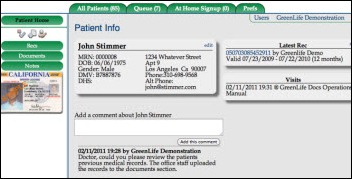



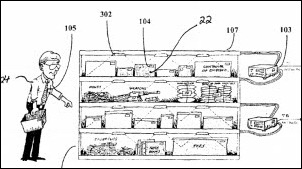


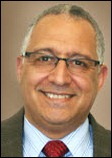

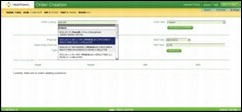

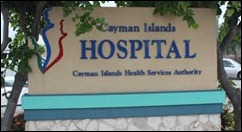



RE: Allscripts. I thought the head-to-head win against Epic mentioned on the Allscripts earnings call was interesting. Glen said they beat Epic because of Allscripts’ ability to provide an EHR that affiliated docs want, vs. Epic, which tries (mostly unsuccessfully) to get physicians in small practices to adopt their EHR for large academic groups. Combine that with what looks like a growing number of Sunrise sales and it’s just possible that Glen isn’t full of hype (well, not entirely), and really HAS built a baby Epic killer. It’ll be interesting to watch how the hospital market responds over the next six to twelve months. We could use a little more choice in the market.
Well den but, Sebellius makes, how do you say it, exagerrated comment about then “may have actally saved lives”. Well den but, i see the key word there as “MAY”. You then, I am learning that many patients suffer then from neglect when nurses and their doctors hover over EMR llike is is a bible with mystical powers tocure.
To come fair, you know then that Sebellius must also talk about patients who then die in hospital every days from glitches and the like.
You know then it poses worry to me when there is not any place to report to Sebellius any death then occurs from EMR, cause she should be told and then she would like to knows this for her press statements. Thank yous